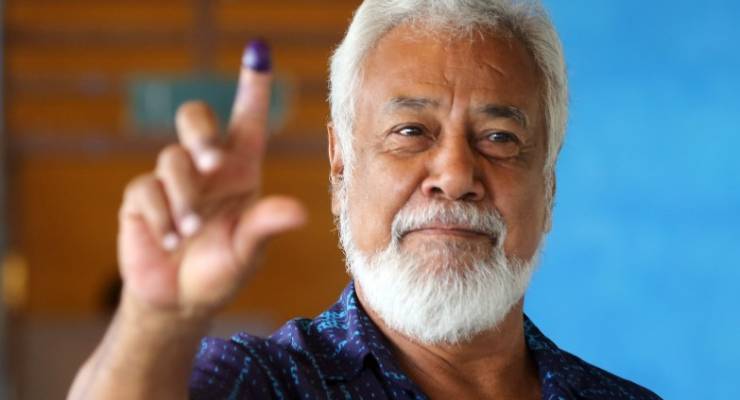
Revolutionary Xanana Gusmao
As predicted, congratulations have flowed following elections in gerrymandered, semi-apartheid Malaysia. Australia has “warmly” congratulated its people “for peacefully and respectfully exercising their democratic right to vote”.
Meanwhile, a peaceful and truly well run poll in Timor-Leste saw revolutionary hero Xanana Gusmao returned to power in the nation’s fifth successful election. This time he is in partnership with another former president, Taur Matan Ruak, who many believe will act as a handbrake on Gusmao’s grandiose instincts and focus the government on pressing issues like water and sanitation.
Next to Indonesia, Timor-Leste is the only other properly functioning democracy in the entire region, but from Canberra there has been silence, underscoring the deep chill between the two countries at the highest levels. The last visit to the capital Dili by an Australian minister was in 2013, ahead of Tony Abbott’s election.
It all started so well, with Australia, albeit belatedly, supporting its independence from its murderous, Indonesian overlords after its people, at the time numbering less than 1 million, had suffered a long and brutal civil war.
Throwing its support behind Timor-Leste in the late 1990s, Australia was prepared to spend valuable political capital accumulated with Indonesia, eventually leading a peace-keeping force that would cost Australia lives and countless millions of dollars.
Australia’s foreign mission to Timor-Leste is bigger than those of much larger countries in the region, and the Australian taxpayer is the biggest single contributor to the country’s foreign aid take, ponying up close to $100 million last year. By many accounts diplomatic and aid staff on the ground do a great job, although a government report card released last year paints a less impressive picture.
It found that, while progress for most investments is on track, several desired outcomes remained incomplete, regarding the safety and empowerment of girls and women, and improved governance at sub-national levels.
Nothing is easy in a country racked by poverty that has difficult topography and limited infrastructure. Australia could do more to help but it has a lot to make up for to the nation. It starts with Australia’s bizarre, unprincipled screwing of the impoverished people of Timor-Leste in the 2006 maritime treaty, which threw away international law. Australia then tried, in 2010, to foist asylum seekers on the country in its human trafficking cash-for-refugees program, as the Gillard government groped blindly for an alternative to the so-called Malaysia solution struck down by the High Court.
The final nail in Australia’s plunge from hero to zero were revelations in late 2013 that a decade earlier, during the treaty negotiations, then Foreign Minister Alexander Downer authorised the illegal wiretapping of the Timor-Leste cabinet, which Australia had donated and built.
There are plenty of strong people-to-people ties between Australia and Timor-Leste, as witnessed in the scores of Australians who traveled there as the largest cohort of international observers for the election. Timor-Leste is country that could do with Australia as a real friend, rather than wealthy bully dribbling out a relative pittance to make itself feel better for otherwise ignoring the place.
Now that the vexatious maritime border issue has finally been put to bed, it’s time to make it up to them.








Would tourism be a goer?
Well said! It be heartening to see a generous and compassionate approach to regional relations, rather than mean-spirited American-style self-interest
Agreed. We are bound in a more profound way than just proximity and “what’s in it for us”.